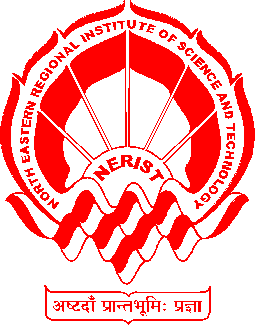The National Institutes of Technology (NITs) are centrally funded technical institutes under the ownership of the Ministry of Education, Government of India. They are governed by the National Institutes of Technology, Science Education, and Research Act, 2007, which declared them institutions of national importance and laid down their powers, duties, and framework for governance. The act lists 31 NITs. Each NIT is autonomous and linked to the others through a common council known as the Council of NITSER, which oversees their administration. All NITs are funded by the Government of India.

Dr. B. R. Ambedkar National Institute of Technology Jalandhar, formerly Regional Engineering College Jalandhar, is a public engineering university located in Jalandhar, Punjab, India established on 1987. It has been declared as an Institute of National Importance under the Ministry of Human Resource Development, Govt of India. It is a member of the National Institutes of Technology (NITs) system, a group of premier Indian technical institutes governed by the Council of NITSER on 2002. It was founded as a joint venture between the state and the central government, originally under the name Regional Engineering College, Jalandhar, Punjab, India (RECJ). RECJ was established in 1989 by the joint venture of Govt of India and Govt of Punjab on the Land of Village Bidhipur and Village Suranussi of District Jalandhar (Punjab) on the Grand Trunk Road bye-pass.
An engineer's degree is an advanced academic degree in engineering which is conferred in Europe, some countries of Latin America, North Africa and a few institutions in the United States. The degree may require a thesis but always requires a non-abstract project.
A Diplom is an academic degree in the German-speaking countries Germany, Austria, and Switzerland and a similarly named degree in some other European countries including Albania, Bulgaria, Belarus, Bosnia and Herzegovina, Croatia, Estonia, Finland, Poland, Russia, and Ukraine and only for engineers in France, Greece, Hungary, North Macedonia, Romania, Serbia, Slovenia, and Brazil.

Mahatma Gandhi Institute of Technology (MGIT) is a technological institution (Autonomous) located in Gandipet, Hyderabad, Telangana, India. It was started in 1997 by the Chaitanya Bharathi Educational Society (CBES), Hyderabad, registered under the Societies Registration Act. The annual intake is 900 students at the undergraduate level and 108 students at the postgraduate level. The institute is affiliated with Jawaharlal Nehru Technological University, Hyderabad (JNTUH), The institute has Autonomous Status till 2021-2031 A.Y. granted by UGC and offers a four-year Bachelor of Technology, in eleven disciplines and two-year Master of Technology, in six disciplines prescribed by JNTU. The college is accredited by the National Board of Accreditation and is ISO 9001:2000 certified

North Eastern Regional Institute of Science and Technology is a science and technology oriented higher education institute in Nirjuli, Itanagar, Papum Pare district, in the Indian state of Arunachal Pradesh. Established in 1984, it is a deemed to be university, autonomous, fully funded and controlled by the Ministry of Human Resource Development, Department of Education, Government of India. The institute is managed by a Board of Management, comprising representatives of Ministry of Education, GOI, the eight beneficiary states of the North Eastern region, AICTE and educationists.

National Institute of Technology Kurukshetra is a public technical and research university located in Kurukshetra, Haryana, India. In December 2008, it was accredited with the status of Institute of National Importance (INI). It is one of the 31 National Institutes of Technology established and administered by Government of India. It runs undergraduate and postgraduate in programme Engineering and Doctor of Philosophy programme in Engineering, Sciences and Humanities.

Punjabi University is a collegiate state public university located in Patiala, Punjab, India. It was established on 30 April 1962 and is only the second university in the world to be named after a language, after Hebrew University of Israel. Originally it was conceived as a unitary multi-faculty teaching and research university, primarily meant for the development and enrichment of the Punjabi language and culture, but alive to the social and education requirements of the state.

Sant Longowal Institute of Engineering and Technology is a Govt. of India established (1989) deemed university under Section 3 of the UGC Act 1956 for higher education and research in India. The UG Program of SLIET is accredited as TIER 1 by the NBA. It is well known as the "Modern Gurukul" of Tech Education due to lush green campus of 451 acres (183 ha) in Longowal, Sangrur, Punjab, India. SLIET is fully funded by the Ministry of Human Resource Development, and is an autonomous body controlled by the SLIET Society. Institute has been set up in the memory of Late Sh. Harchand Singh ji Longowal under Rajiv Longowal Punjab accord. Educational opportunities include technical and practical training in the fields of engineering and technology. The students and alumni of SLIET are informally referred to as SLIETians.

Dhaka University of Engineering & Technology, Gazipur, commonly known as DUET, formerly BIT Dhaka, is a public engineering and technological research university in Gazipur, Bangladesh, which focuses on the study of engineering and architecture. It is one of the top PhD granting research universities of Bangladesh. The university requires diploma engineer candidates, graduated from polytechnic institutes or technical schools affiliated by the Bangladesh Technical Education Board for under-graduation enrollment.

Samrat Ashok Technological Institute (SATI) is a Grant-in-Aid Autonomous college in Vidisha in the central Indian state of Madhya Pradesh. It was established by Late Maharaja Jiwajirao Scindia on November 1, 1960, with a donation from Gangajali Trust fund. It is an autonomous institute, which is funded by Government of Madhya Pradesh and managed by the Maharaja Jiwaji Rao Education Society chaired by Hon'ble Shrimant Jyotiraditya Madhavrao Scindia.
The institute started with degree courses in Civil Engineering, Mechanical Engineering & Electrical Engineering. The institute now offers nine full-time and six Part-time undergraduate courses leading to the degree in Bachelor of Engineering (B.E.) and sixteen Postgraduate courses in the areas of Engineering, Science and Management. The college campus is spread over an area of 85 acres.

Sardar Beant Singh State University (SBSSU), formerly known as Beant College of Engineering and Technology, is a university located in Gurdaspur, Punjab, India. SBSSU imparts education in various Science and Engineering disciplines. SBSSU has seven academic and two administrative departments.
Federal Institute of Science And Technology (FISAT) is a private engineering college and business school in Mookkannoor, Kerala, India, run by the Federal Bank Officers' Association Educational Society (FBOAES), established in 2002. It is an initiative of the Federal Bank Officers' Association (FBOA), the organisation representing the officers of the Federal Bank. FISAT is accredited by NBA and NAAC.

The Diploma in Engineering or Diploma in Engineering & Technology or Diploma in Technical Education or Technical Diploma is a program focused on practical and skills-oriented training in India. It is a technical course that only covers the essentials when ranked with an undergraduate engineering degree. It aims to provide students with industry or job related basic engineering knowledge, scientific skills, computing and analysis, mathematical techniques, a sound knowledge of English to communicate in the field and ability to apply problem-solving techniques.

Punjab has a long history of education.

Parala Maharaja Engineering College (PMEC), Brahmapur, Odisha is Government engineeringcollege in southern Odisha, India. Established in 2009, the college was inaugurated by Naveen Patnaik, the then chief minister of Odisha. This college is named after the King Krushna Chandra Gajapati honorably known as Maharaja Sir Krushna Chandra Gajapati Narayana Dev KCIE, was a key personality and regarded as the architect of an Independent united Odisha State. The Parala Maharaja engineering College was approved by the All India Council of Technical Education (AICTE) New Delhi, Govt. of India and was affiliated to Biju Patnaik University of Technology (BPUT), Rourkela, Government of Odisha but now, it is an autonomous college from 21st January, 2021 along with GCE, Kalahandi and GCE, Keonjhar. This college is also accredited as "B+" by the National Board of Accreditation (NBA) New Delhi, Govt. of India.
India has the largest numbers of engineers as well as the largest number of engineering education institutes and infrastructure in the world. As of 2021, India annually produces 1.5 million engineering graduates. India's technical education infrastructure includes 2500 engineering colleges, 1400 polytechnics and 200 schools of planning and architecture.
College of Engineering, Pathanapuram was established in 2011. It is one of the fourteen Professional institution under the Co-operative Academy of Professional Education. established by Government of Kerala.












